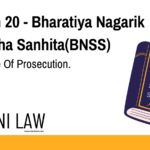Code:
24. (1) The Court of a Magistrate may award such term of imprisonment in default of payment of fine as is authorised by law:
Provided that the term—
(a) is not in excess of the powers of the Magistrate under section 23;
(b) shall not, where imprisonment has been awarded as part of the substantive sentence, exceed one-fourth of the term of imprisonment which the Magistrate is competent to inflict as punishment for the offence otherwise than as imprisonment in default of payment of the fine.
(2) The imprisonment awarded under this section may be in addition to a substantive sentence of imprisonment for the maximum term awardable by the Magistrate under section 23.
Explanation:
This section deals with the imprisonment that can be awarded in default of payment of a fine imposed by a Magistrate. It essentially outlines the following:
- Authority to Impose Imprisonment: A Magistrate has the power to impose imprisonment in default of fine payment, within the limits defined by law.
- Limits of Imprisonment:
- The term of imprisonment cannot exceed the Magistrate’s overall power to impose imprisonment under Section 23.
- If a substantive sentence of imprisonment is already awarded, the imprisonment in default of fine cannot exceed one-fourth of the maximum imprisonment term that the Magistrate can impose for the offense.
- Additional Imprisonment: The imprisonment in default of fine can be awarded in addition to the main (substantive) imprisonment sentence. Although, it cannot exceed the maximum term a Magistrate can impose under Section 23.
Illustration:
Suppose a Magistrate convicts an individual for an offense and imposes a fine of ₹10,000. The maximum imprisonment term for the offense under Section 23 is 3 years. The Magistrate also awards a substantive imprisonment term of 1 year for the offense.
Under Section 24, the Magistrate can impose a maximum of 3 months (one-fourth of 1 year) imprisonment in default of payment of the fine, even though the maximum imprisonment power under Section 23 is 3 years. This additional 3 months will be served in addition to the 1 year substantive imprisonment term.
Common Questions and Answers:
Q: Can a Magistrate award imprisonment in default of fine without awarding any substantive sentence?
A: Yes, a Magistrate can award imprisonment in default of fine. This is even if a substantive sentence of imprisonment is not awarded. However, the term of imprisonment in default of fine cannot exceed the Magistrate’s power under Section 23.
Q: What happens if the fine is not paid within the specified time?
A: The individual will be required to serve the imprisonment term in default of fine as awarded by the Magistrate.
Q: Is there any specific time limit for the payment of the fine?
A: The specific time limit for fine payment is generally determined by the court at the time of sentencing. It usually is within a reasonable time period.










